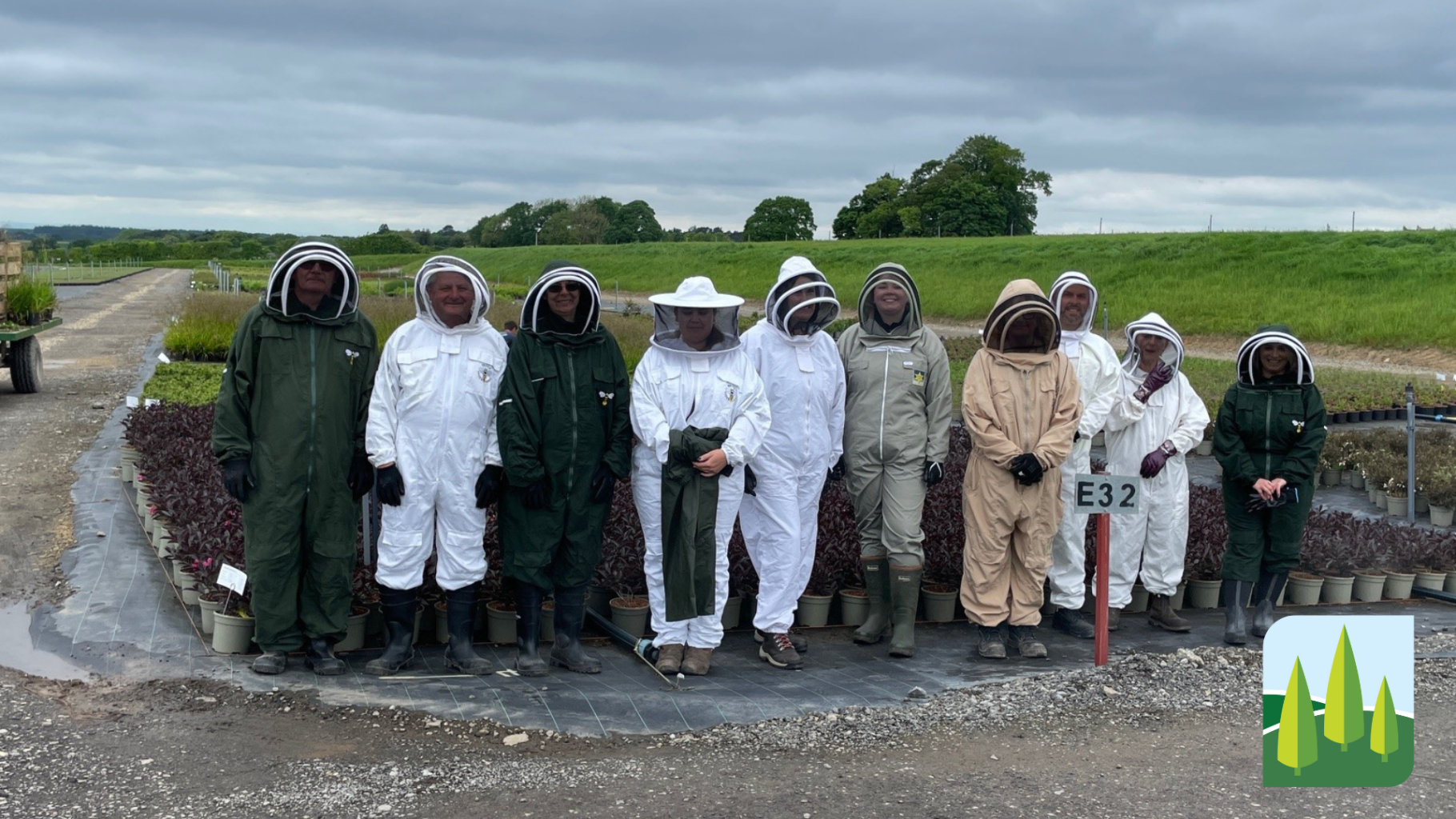
What a delightful buzz we had at our onsite apiary in honour of World Bee Day on the 20th of May! Some of our team gathered for a lunchtime celebration amidst the hum of our hardworking bees, immersing ourselves in the fascinating world of these essential pollinators. Led by our expert beekeeper, Keith, from the Harrogate Beekeepers Association, we soaked in intriguing facts about bees and savoured the taste of our locally produced honey. 🍯🌻
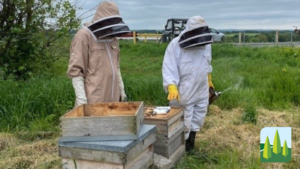
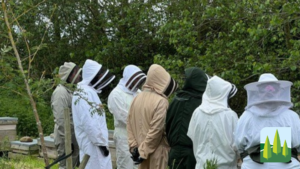
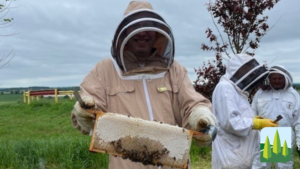
Our talented staff put their culinary skills to work, creating mouthwatering honey-infused treats. Proceeds from the cake sale will directly support bee conservation efforts abroad and contribute to bees for development projects – a total of £150 was raised, and £75 will go to each charity.
Our World Bee Day celebration not only raised funds for important causes but also raised awareness about the plight of bees and the steps we can take to protect them. By promoting bee-friendly practices and supporting conservation efforts, we hope to make a positive impact on the environment.
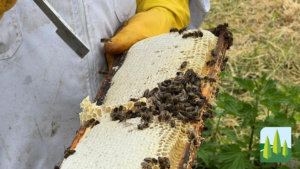
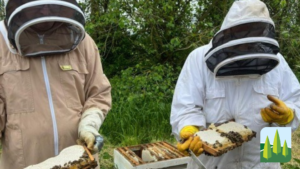
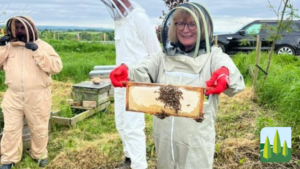
We extend a huge thank you to Keith and the Harrogate Beekeepers Association for their invaluable insights and to everyone who contributed to making the day a buzzing success. Let’s continue to support our bee populations and enjoy the sweet rewards of our efforts!
Posted 30th May 9:49am
Read more >
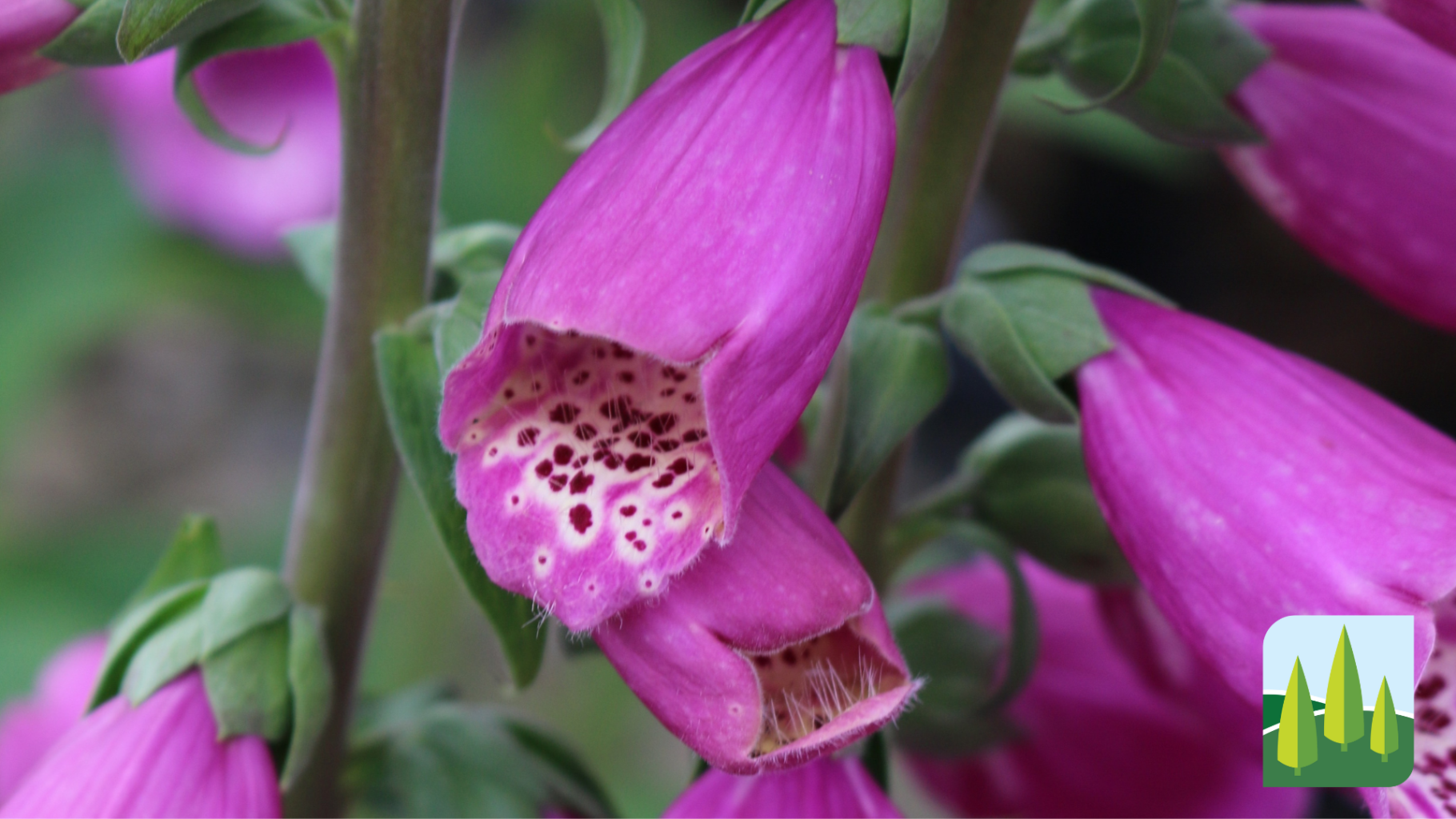
As June the 5th is World Environment Day, this month’s article is about the importance of native plants. Why non-native can have implications beyond the garden fence and the consequences to our native wildlife need to be considered.
A plant which is native to the UK is one which is indigenous to an area in a geological era. What we tend to say is that this is anything here at the time of the last ice age. Therefore, anything after this era is seen as being introduced either deliberately or accidentally into the UK.
The advantages of including native plants within a garden include things such as the less of a need for use of fertiliser or pesticides. The plants are better suited to our weather; they will be used to our damp winters and short summers. They will provide essential shelter and food for our native birds, insects and wildlife. The relationship between our insects and plants is an intricate one which has evolved over thousands of years. For example, the length of the tongue of a moth needs to be long enough that when it approaches a flower it can reach the nectar which they feed off.
Integrating native plants into the garden should not be difficult; there are plants that will grow in various aspects of the garden. Convallaria majalis, known as Lily of the Valley, looks like a really delicate plant; they produce dainty white bell-shaped flowers however, don’t be deceived, they will thrive in poor soil and in the wild and can be found growing on top of Limestone Pavements.
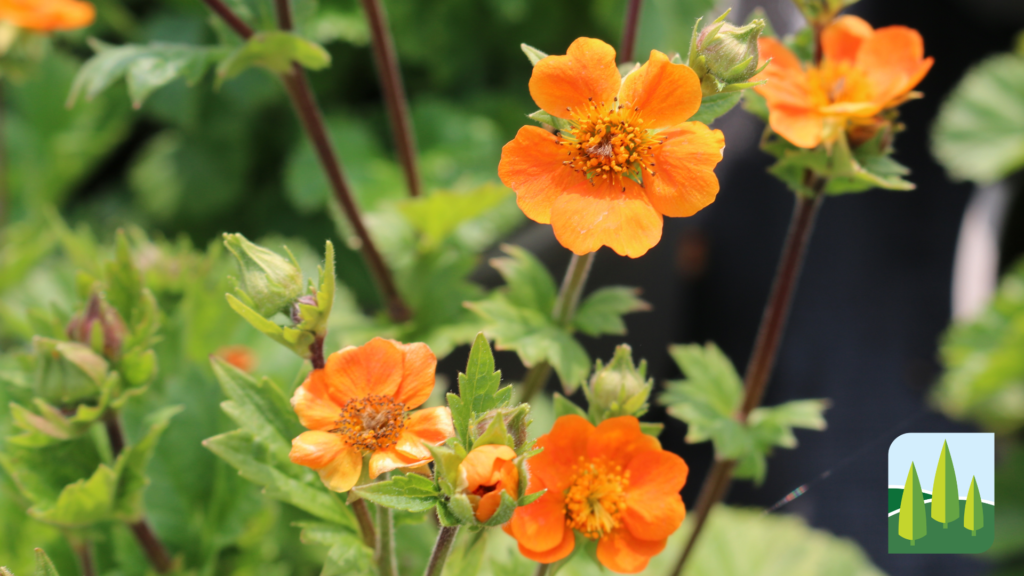
There are garden plants which we are all familiar with which are descendants from wild varieties. Such as Geums which grow along hedgerows, known as wood avens, or herb bennet. Dianthus has many cultivated varieties, but there is a plant which is native to the Cheddar Gorge, where it grows in scrub clearance making it ideal in a garden rockery.
Native plants are great for hedging. Taxus and Buxus make fine formal evergreen hedges. Fagus, Carpinus, and Acer campestre are not only great stand-alone trees, but they can also be used in hedging. Fill your garden with native flowers and watch the natural world make its home there. If you have an area of shade, use ferns such as Dryopteris affinis. For a splash of colour, look for Primula vulgaris, Pulsatilla vulgaris, or Centaurea. Native bulbs are also great in a garden or managed landscape, as well as Fritillaria meleagris and Hyacinthoides non-scripta, the native Bluebell.
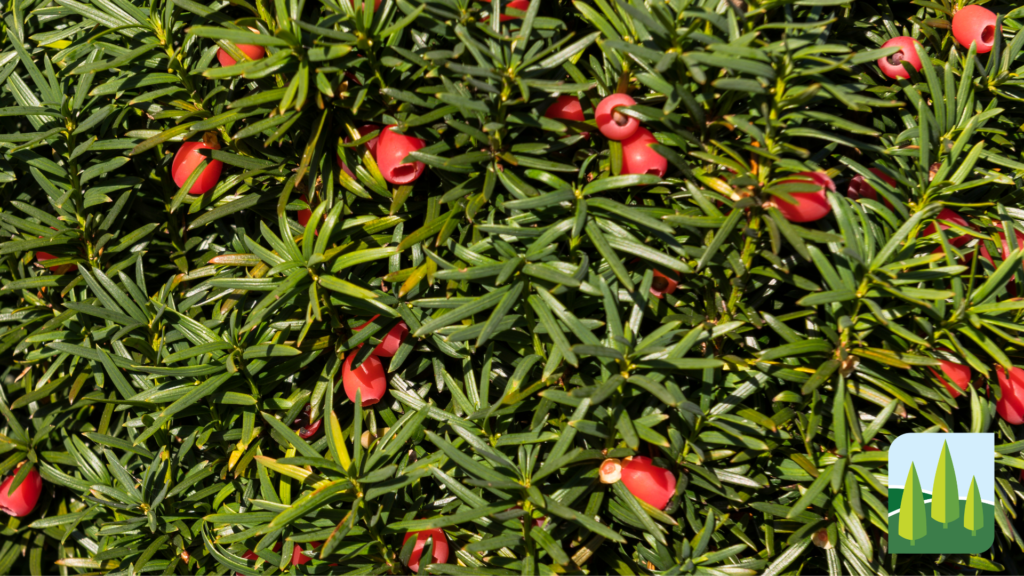
The Bluebell is a casing point as to why we should choose native over exotic. The decline of the Bluebell population is linked not only to the decrease in our woodlands but also to the introduction of the Spanish Bluebell. English Bluebells are quite dainty, with flowers along one side of the stem; they come mostly in a strong blue colour. Spanish Bluebells have escaped from the confines of gardens and estates and are colonising our woodlands. In our fertile soils, they are easily reproducing and are in direct competition with our native plants. In this situation, the invader becomes a pest, has a detrimental effect on the ecosystem of the woodland, and is now classed as an invasive species.
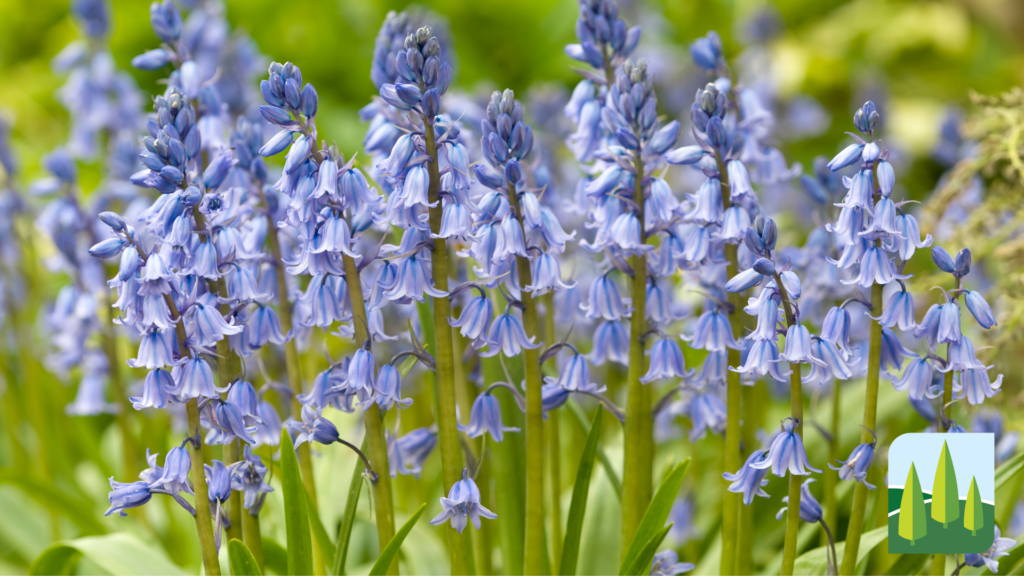
Being an island, we must ensure our native plants are cared for, and that plant health is seen as a priority at our ports. Plants have their own passports for traceability, and all appropriate checks must be performed before we accept them into the UK.
So to help the local wildlife you can do your bit. They might not always be as showy as exotic varieties, but having native plants in your garden will help our wildlife and slow down the number of diseases we bring into the country too.
Posted 30th May 8:26am
Read more >
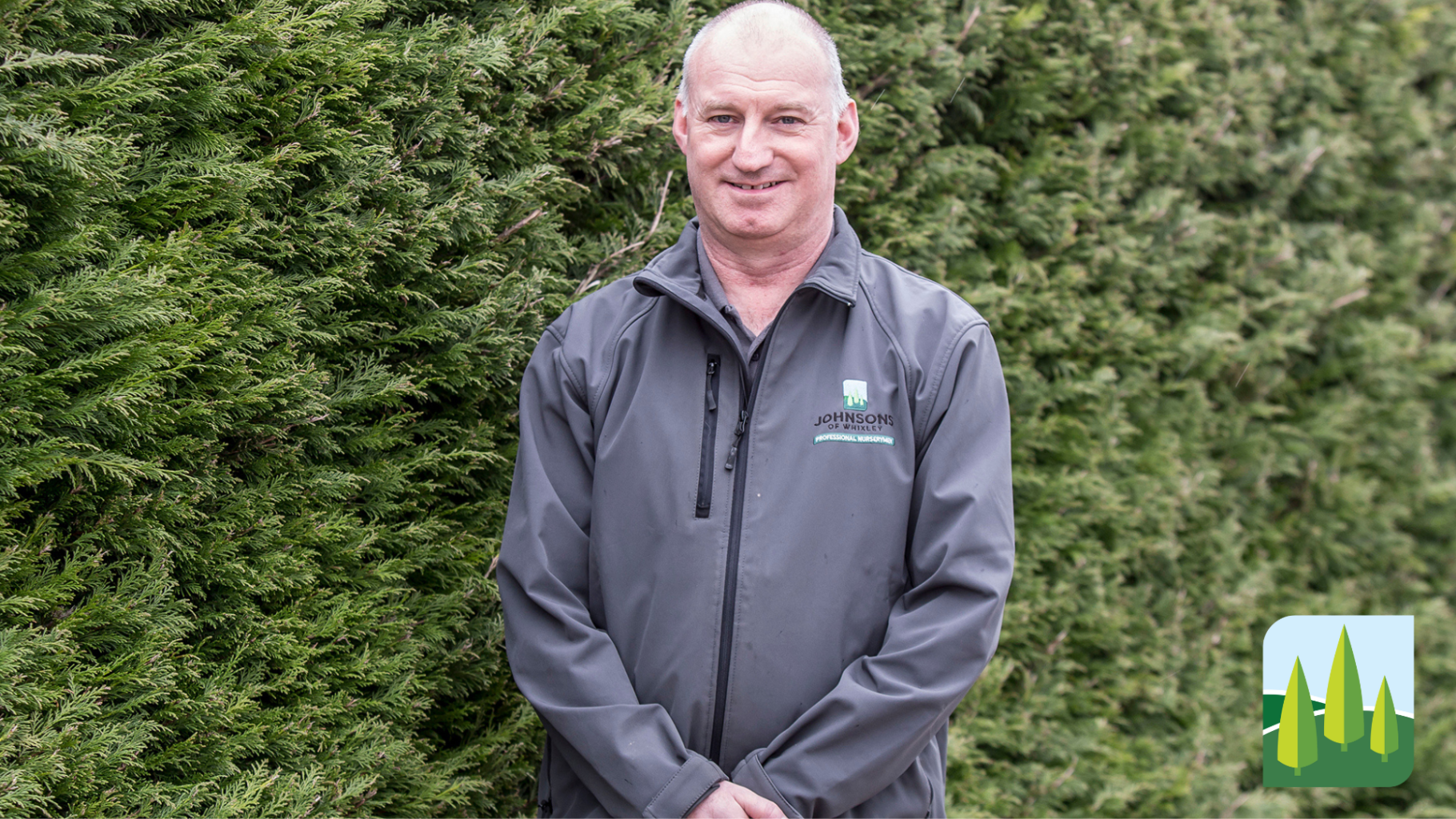
In June, we celebrate an incredible milestone and bid a heartfelt farewell to Tony Coles, who has been an invaluable member of our team for almost 30 years.
As Tony embarks on this new adventure, we want to extend our deepest gratitude for their 30 years of service. Your dedication and contributions have made a lasting impact, and you will be greatly missed by everyone here at Johnsons.
Below we asked Tony some questions, ahead of retirement.
1) Start date at Johnsons: 6th March 1995
2) What has motivated you to stay at Johnsons all this time?
The Industry is a great industry, and I have enjoyed working alongside the people at Johnson and the customers. you learn something new almost every day.
3) What has changed most during your time at Johnsons? Blimey, so much has changed, the turnover of people has increased over the years, the change in plants that we produce has evolved enormously, marketing and promoting our business has improved massively with technology, it’s a totally different business to when I arrived, but I would say the company values have remained as it has grown, (from just about a £1M business to where we are now), which is key to running a good business and keeping good people in the business to progress. I don’t think you keep people for as long as some have served if the values and culture are not right.
4) What is your proudest accomplishment during your time at Johnsons? I’m not sure about proudest, but I’m proud of getting one of our Key Accounts to a million T/O in a financial year.
5) What are you going to miss the most? Speaking to the customers who I have known for many years, some are not just customers now but friends, so I am sure I will keep in touch with some anyway.
6) What are your plans for retirement? I will take a good holiday abroad in September but also look after the grandchildren. I have plenty to do; I don’t think filling the days will be an issue; I will be down our allotment almost every day in the summer (when it doesn’t rain!), and plenty of looking after grandchildren, which is a privilege, they definitely keep me fit, and lots of walking and generally being able to do what we want to do when we want! Don’t worry, the boss (Sandra) will keep me busy!!!!!
7) Tell us about a memorable day at Johnsons: The trips abroad with customers were always memorable, I don’t think there was one trip where something didn’t go wrong, or was quite comical, particularly the segways in Budapest!!
8) Favourite trip abroad? Have had a couple of good trips, Porto was a good trip with Customers, as was Budapest. These trips, although deemed a luxury, are very important to cement customer relationships and for customers to engage and listen to other landscapers and learn from each other. I don’t think these trips can be underestimated.
9) How will you celebrate your final day? I will probably still try and get in that last sale/order! I do have a very nice Whiskey to sample that I was given and told to save until my retirement so I may just have nip!
10) Any advice for colleagues as you leave? On the dry wipe board in my office, I have the following and I think it’s true, ‘Never assume – always ascertain’ – ‘if it isn’t written down – it didn’t happen’ and finally ‘Get rid of ambiguity’ and try not to hide behind e-mails – speak to people!
Posted 29th May 3:37pm
Read more >